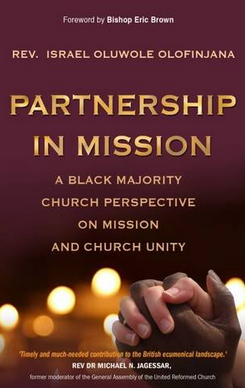What on earth are Black Majority Churches?
Intercultural ecumenism between Black Majority Churches (BMCs) and British Baptists in London. By Israel Olofinjana
What on earth are Black Majority Churches (BMCs)?
 The history of BMCs in London is very phenomenal because within a short period of 60 years they have grown from rejection to influence, that is, from Windrush (the famous ship that brought Caribbean migrants in 1948) to Jesus House!
The history of BMCs in London is very phenomenal because within a short period of 60 years they have grown from rejection to influence, that is, from Windrush (the famous ship that brought Caribbean migrants in 1948) to Jesus House!
Their historical development is rich and diverse in nature, however the generic term; Black Majority Churches is problematic as it does not address the diversity that exists within these Churches.
Black Majority Churches are diverse in terms of ecclesiology, theology and missiology. Some of them are Churches while others are Para-Church organisations or agencies. Some of them are independent Pentecostal Churches while others are part of Historic Churches. Some are from Pentecostal, Holiness and Evangelical Tradition while others are Sabbatarians.
Some of them are Unitarians while others are Trinitarians. Some of them have embraced Black Liberation Theology while others do preach Prosperity Gospel. Some of them have grown to become Church denominations while others are still independent Churches. Some are Church plants from their denominational Churches back in the Caribbean or Africa while others are Churches that have started here in London.
These are examples to illustrate the richness of their diversity.
A short history of BMScs in Britain
The genesis of BMC in London can be traced back to 1906 with the founding of Sumner Road Chapel started by the Revd Thomas Kwame Brem-Wilson in Peckham, South East London. The Revd Brem-Wilson, a business man and school master was born into a wealthy family in Dixcove, Ghana around 1855. He migrated to Britain in 1901 and later founded Sumner Road Chapel known today as Sureway International Christian Ministries now in Herne Hill South East London.
However, this is not the first BMC in Britain. That honour goes to a church founded by John Jea in the early 19th century. After a fruitful itinerant ministry in North America and Europe, John settled down in Portsmouth, England with his wife, Mary and possibly started a church in their house circa 1805-1815.
The 1940s and 1950s saw the influx of Caribbean families into the UK due to the invitation of the British government asking them to come and help rebuild the country after the devastations of the Second World War.
Many people from the Caribbean responded to this call but to their surprise and dismay they were rejected by the society and the Church. This rejection with other factors such mission to the UK led to the formation of Caribbean Pentecostal and Holiness Churches in London and the Midlands.
The independence of African countries from around 1957 onwards led to African diplomats, students, tourist coming to Britain. When they discovered like the Caribbeans before them that they were rejected by the British Churches and society at large, this led to the founding of African Instituted Churches (AICs) in London.
The 1980s and 1990s saw the emergence of African Newer Pentecostal Churches (ANPCs). The 1990s also witnessed the birth of independent Caribbean Pentecostal Churches in London. It is the explosive growth of these African and Caribbean Churches in the 1990s that has drawn the attention of scholars and the media to BMCs.
What relationship exists between British Baptists and BMCs?
This is happening through the sharing and use of church buildings. This has been going on since the 1960s and while some of these relationships have the power dynamics of that of a landlord and tenant, we are seeing cases where Baptist churches are good hosts to their neighbour churches.
I have seen good examples of this in Greenwich where I lead a Baptist church. For example, our church Woolwich Central Baptist Church is a host to a Caribbean Pentecostal church called Pentecostal City Mission. Pentecostal City Mission uses our church building on a Sunday afternoon after us in the morning. Our church has a good working relationship with Pentecostal City Mission and we have also had joint activities such as watch-night service and Sports day. In addition, I have a good relationship with Pastor Roy, the minister of Pentecostal Mission.
Another example in Greenwich is the relationship between East Plumstead Baptist Church and Rivers of Life Church. East Plumstead Baptist Church host Rivers of Life Church in their building on Sunday afternoons. The Revd Raphael Amoako-Atta and Bishop Brissett are good friends and respect each other’s ministries. East Plumstead Baptist Church is also a host to another church on a Saturday. This is the Nepalese Fellowship which actually grew out of the church.
In conclusion, the proliferation and diversity of BMCs in London will continue so long as there is migration (this is becoming difficult in the UK) and London remains a global city.
But in addition, God’s creative Spirit will continue to stir the hearts of people to mission and intercultural ecumenism. British Baptists have a part to play in welcoming BMCs into their buildings.
While the sharing of church buildings is still a problem in some Baptist churches, others are doing well in taking interest in their tenants!
The Revd Israel Oluwole Olofinjana is the pastor of Woolwich Central Baptist Church in London and the author of the new book, Partnership in Mission: A Black Majority Church Perspective on Mission and Church Unity from which this excerpt was taken
Baptist Times, 28/08/2015